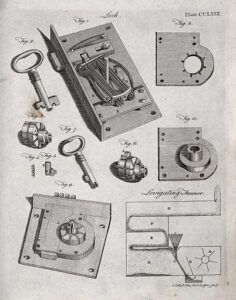 “The real problem is not whether machines think but whether men do”.
“The real problem is not whether machines think but whether men do”.
B. F. Skinner
Before I retired from The School back in the UK I persuaded one of my chaps there to build me a new computer for my studio. For those readers unfamiliar with such things, modern digital studios are based entirely on the computer, which not only handles all of the recording and editing tasks, but which can also (by means of samples and virtual instruments and processors and so forth) generate orchestras on demand… apparently out of thin air!
As the techniques required for such feats become more complex and sophisticated over time, so the processing power required to effect them increases. At the same time, any computer that has been in use solidly for a considerable period (more than a decade in the case of my studio machine) tends to become increasingly prone to failure – the which could result in the loss of precious and irreplaceable creations.
The long and the short of all this is that the time has finally come for me to replace my studio computer.
No big deal – you might think – but there are serious implications in so doing. My machine is used primarily for the creation of music – but also for my online teaching at the College. As indicated in my last posting Anam Danu is currently in the process of finalising a new album. The fall term – one of the two in which I teach – starts at the beginning of September. There is a relatively brief window in which to get everything working correctly.
Replacing a computer is not – in this case – a simple matter of buying a new device, plugging it in and firing it up. My musical pursuits require the use of a considerable number of musical applications, virtual instruments, sample libraries, software appliances and suchlike. All of these need to be installed on the new machine and all of the musical and other data that now virtually fill my old machine must be transferred to the new beast.
These are definitely non-trivial tasks and there are many potential pitfalls along the way which might cause important functions not to work correctly. These must all be patiently trouble-shot until everything is as it was before – but considerably faster and with storage capacity for much new creation over the coming decades.
You might get a sense from this brief discourse as to why I have repeatedly put off effecting this transfer over the past couple of years. I have – however – now reached the point of no return and all must be completed and tested in the shortest of orders if disaster is not to ensue.
Fingers firmly crossed!


Recent Comments